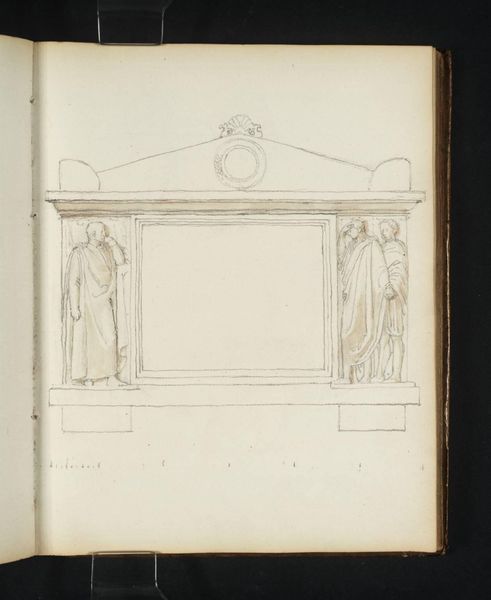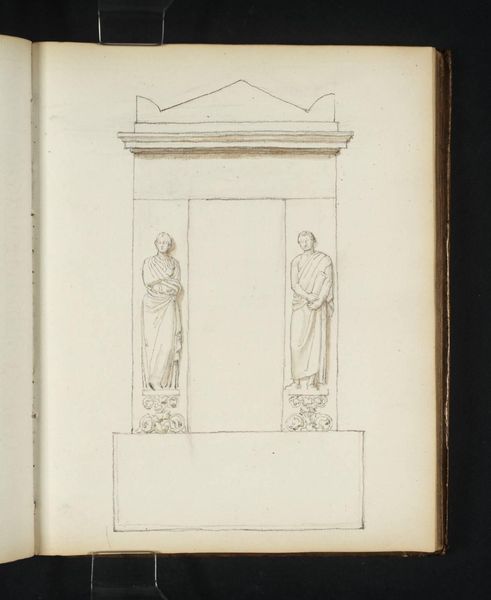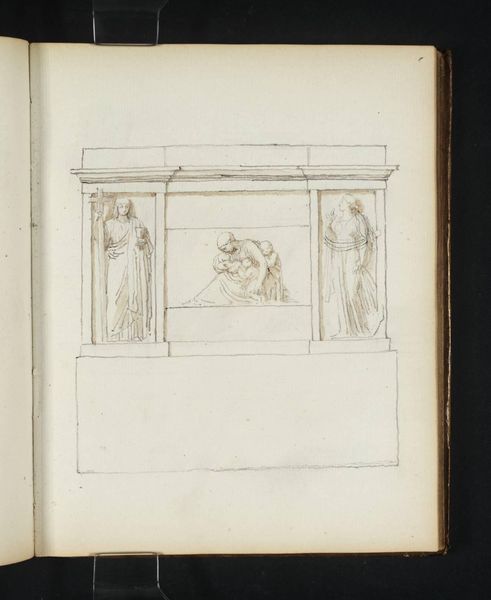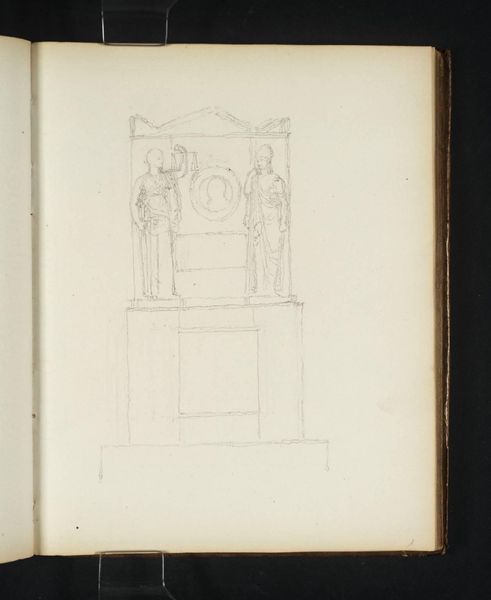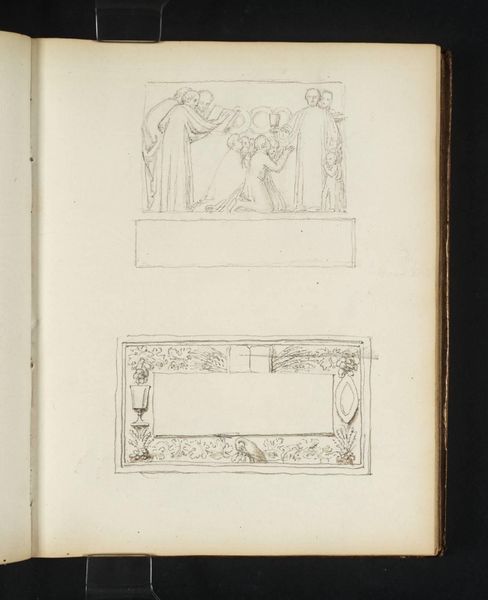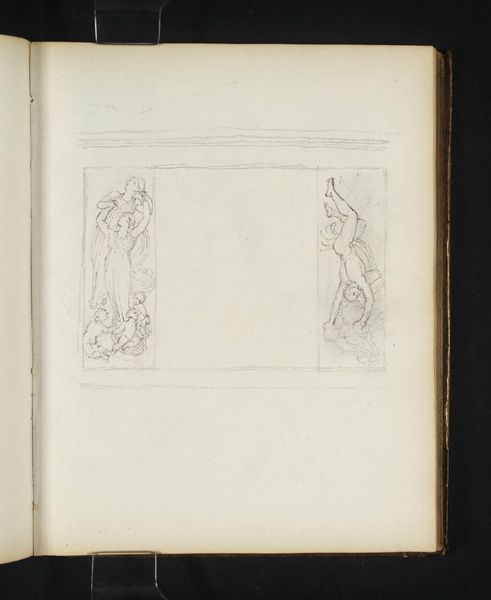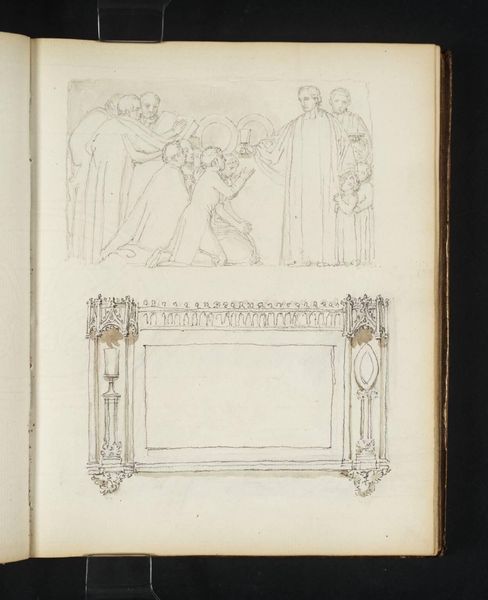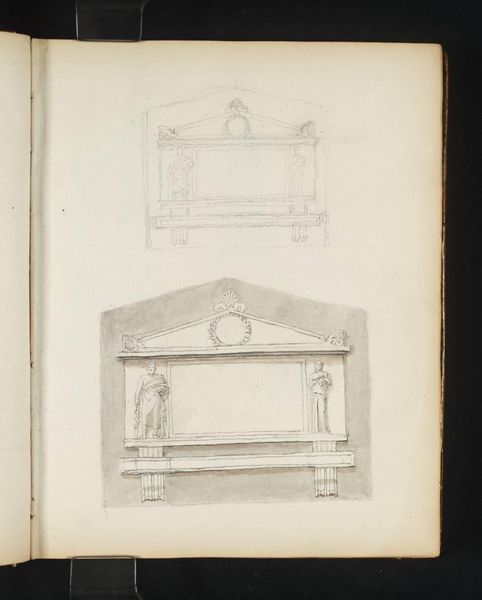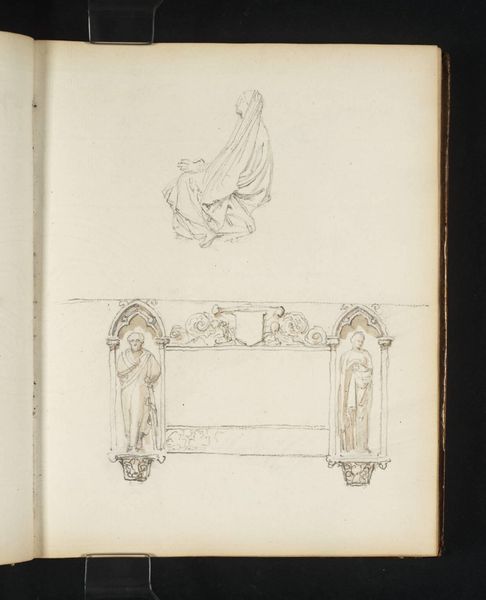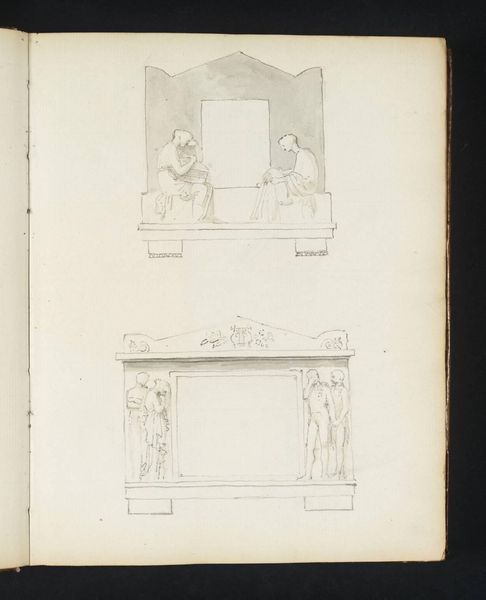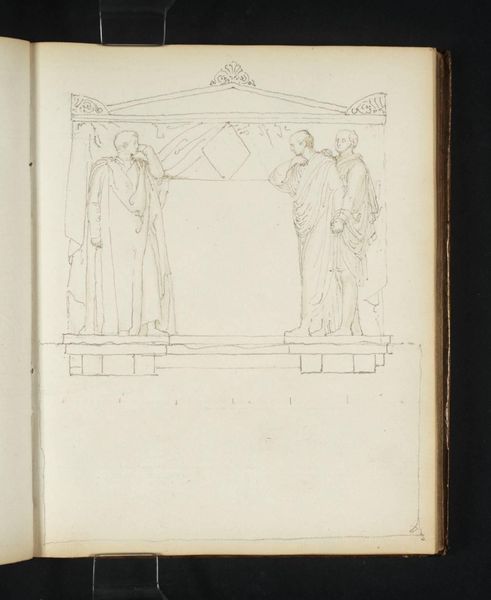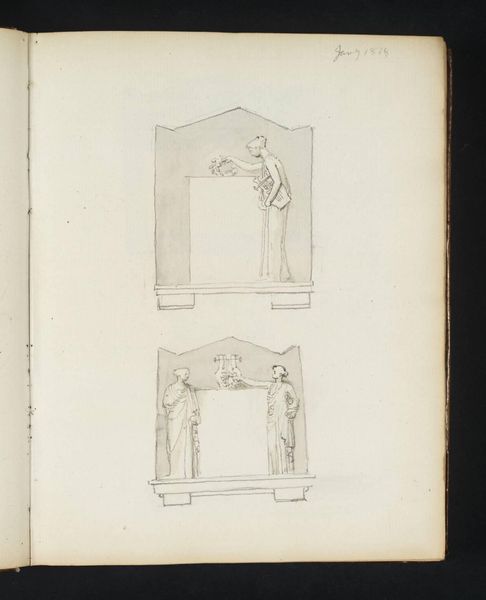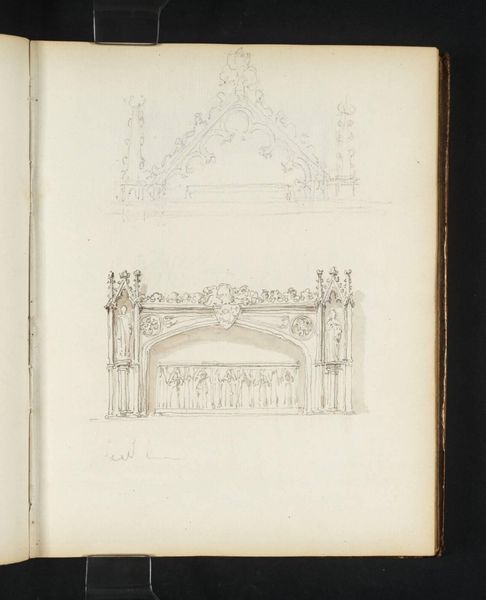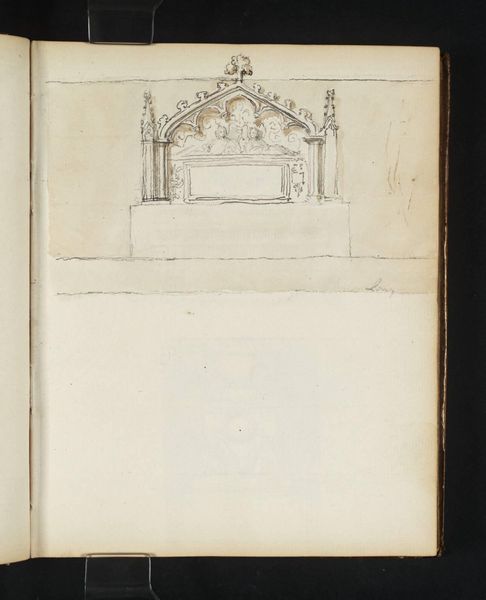![[title not known] by John Flaxman](/_next/image?url=https%3A%2F%2Fd2w8kbdekdi1gv.cloudfront.net%2FeyJidWNrZXQiOiAiYXJ0ZXJhLWltYWdlcy1idWNrZXQiLCAia2V5IjogImFydHdvcmtzLzU0ZGRlZTBmLWU4NjQtNDEwNy04YzdjLTQ3MDhmMTRkZGQ4Yy81NGRkZWUwZi1lODY0LTQxMDctOGM3Yy00NzA4ZjE0ZGRkOGNfZnVsbC5qcGciLCAiZWRpdHMiOiB7InJlc2l6ZSI6IHsid2lkdGgiOiAxOTIwLCAiaGVpZ2h0IjogMTkyMCwgImZpdCI6ICJpbnNpZGUifX19&w=3840&q=75)
Dimensions: support: 198 x 157 mm
Copyright: CC-BY-NC-ND 4.0 DEED, Photo: Tate
Curator: This drawing, currently untitled, comes from the hand of John Flaxman, who lived from 1755 to 1826. It's a pen and brown ink sketch on paper. Editor: It strikes me as deeply melancholic. The grouping of figures feels both intimate and isolated within the architectural frame. Curator: Flaxman was deeply invested in Neoclassicism, and this draws heavily on the visual language of classical friezes, reflecting Enlightenment ideals, yet almost subverting them with its starkness. Editor: Yes, I see that. The figures almost seem trapped within this temple-like structure. There's a tension between the order of the architecture and the implied emotion of the figures huddled together. Are they mourning? Curator: Flaxman's work often explores themes of loss and remembrance in the context of empire, and the role of women in it. This could be a scene of communal grief or perhaps a reflection on the impact of societal forces on domestic life. Editor: That certainly gives me a fresh perspective. It's a powerful reminder that even seemingly simple sketches can carry such potent layers of historical and emotional meaning. Curator: Precisely. Flaxman's ability to evoke emotion through minimal means speaks volumes about the visual power of drawing within the larger narrative of early British art.
